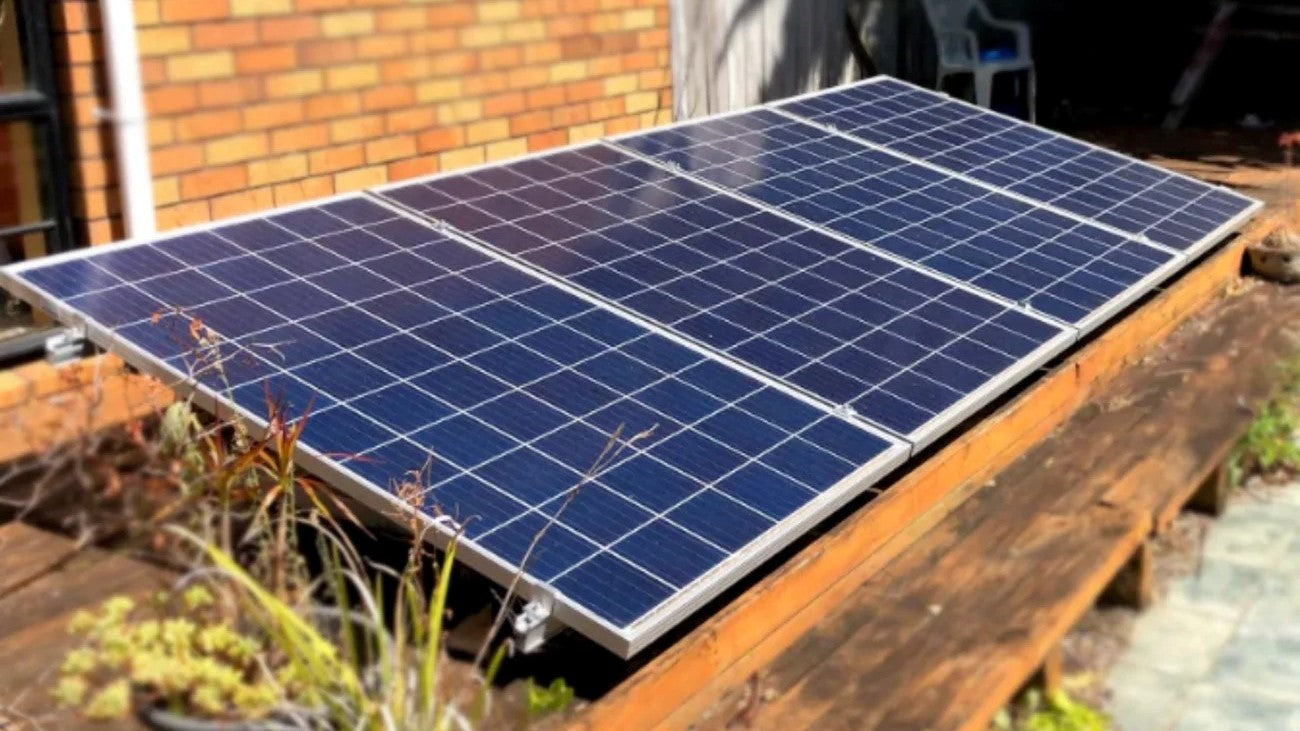What are the Most Efficient Solar Panels?
The most efficient solar panels are the ones that provide consistent power output. We prefer Trina solar panels and include them in all of our solar panel kits. One way to improve the efficiency of your solar system is to clean your solar panels.
Why Should I Clean My Solar Panels?
Over time, your solar panels will accumulate a certain amount of grime on them that isn’t being fully removed with rainfall, in addition to larger debris such as leaves or bird droppings. This surface grime can reduce the efficiency of your solar panels by up to 20% with serious neglect. If you only have a few panels and are not in a position to add more, cleaning your panels is a simple way to increase the output of your solar system.
When Should I Clean My Solar Panels?
As a general rule, your solar panels do not need to be cleaned more often than once a year, as rainfall will generally do a pretty good job of rinsing off most grime, especially if they are installed with a tilt. However, if you live near high traffic roads, in a particularly dusty area, or somewhere more prone to collecting surface grime, you may need to clean your panels more often. Monitor changes in your panels’ output over time to determine if the reduced efficiency is consistent, which will indicate a need to clean the panels. Be sure to also check the other components of your solar system to isolate the issue.
We recommend cleaning your panels on overcast days if possible, or in the early morning or late afternoon when the sun isn’t so strong. Early morning is best, as the morning dew will slightly soften the surface grime, making for easier cleaning.
What Should I Use To Clean My Solar Panels?
You don’t need anything complicated or expensive to clean your solar panels - they’re not much different to windows. You will most likely only need some plain water to clean your panels, however more stubborn grime may require some soap or window cleaner. Isopropyl alcohol can also be used as a spot cleaner for any oily stains that can’t be removed otherwise.
You DO NOT want to use anything abrasive or metal to clean your panels, as you risk scratching or otherwise damaging them - scratches will create shadows which will reduce the performance of your panels. A soft cloth or sponge, soft bristle brush, and squeegee should be all you need.
How Do I Clean My Solar Panels?
Start by gently brushing any loose debris off your solar panels - if you’re working on a dry day this should remove a good amount of grime from your panels. The next step is to use a hose, if possible, with relatively high pressure to rinse off the panels thoroughly - you want slightly more pressure than rainfall would provide to try and push the dirt off. You can also use your brush/cloth/sponge to gently agitate the dirt and encourage it to wash off. Before the water has a chance to dry on the panels, squeegee it off, as water spots will leave shadows on your panels.
If your panels still appear dirty, you can repeat this process with the addition of some warm soapy water or window cleaner, then rinsing, again making sure to thoroughly remove excess water with a squeegee. To improve performance, you don’t need to clean anything other than the surface of your solar panels.
Be Safe!
If your panels are ground mounted, you shouldn’t have too much trouble getting around them to clean, just make sure you don’t lean on them with any force, and watch your footing to prevent falling on them.
If your panels are roof mounted, always err on the side of caution, as the water will make all the surfaces around you slippery. If you can, work from the ground using extensions on your tools to reach the panels, otherwise use proper safety gear, and make sure you have someone else keeping an eye on you. Don’t be afraid to call the job off if it can’t be done safely - if you’re not seeing a major impact on power output, it’s not worth the risk.


